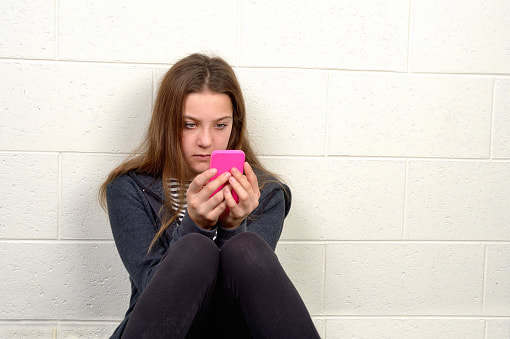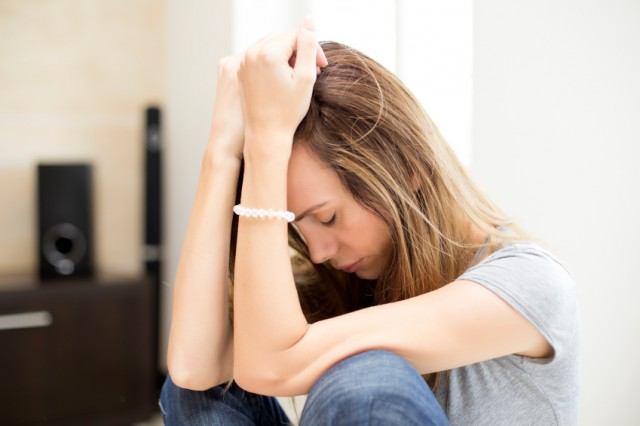|
Social Media and Teens – (from article, Our Kids in Crisis, by Stephen Perrine NYT)
According to a CDC report in October 2021 From 2010 and 2020 suicide rates among teens had risen 53%. Then came the pandemic. Nearly 1- in-10 high school students admitted they had tried to take their own lives in the previous 12 months and 1 - 5 had seriously considered it. We teens have superpowers granted by an array of social media apps on our smartphone. Snapchat lets us see where our friends are, who is hanging out with whom, so we know if we are being excluded. Instagram give us the power to compare our lives with others who post filtered, idealized images of themselves Tik Tok Allows us to endlessly scroll posts that cater to our obsessions, no matter how dark or damaging. Social media allows us to communicate with others anywhere, anytime, often against the wishes of our parents. It allows us to reach out, but we can also be reached by bullies. Now we can be harassed anytime, anywhere. Algorithms feed us a diet of content about our deepest passions, fears and insecurities. Scammers and sexual predators find it easy to access children. The National Center for Missing & Exploited Children (NCM&EC) reported a 97.5% increase in online enticement. Self-harm is up 180 %*, Boys and girls have higher rates of anxiety and depression. With 2 hours a day of social media use there is often no related increase in poor mental health. But when daily use goes to 3 or more hours, the increase in mental illness is often quite sharp. However, it’s more than just smart phones, social media, fomo, and technology, there’s teacher burnout, overcrowding of schools, active shooter drills, and real mass shootings, a pandemic, the political divides, angry adults everywhere fighting on planes, global warming, wars, etc. there isn’t a safe place and social media amplifies all of these anxieties. What can we possibly do? Become aware of overuse, if you feel it dragging you down don’t use it, save yourself…. Find an appropriate balance Unplug, and unwind, be kind to your mind *- Jonathan Haidt, Professor NY University
0 Comments
How Do You Know If You Have Depression?
You feel like you can’t get out from under a heavy blanket weighing you down. Nothing brings you joy anymore. Your loved ones say you haven’t laughed in months. You’ve lost the motivation to do simple things like combing your hair or cleaning the kitchen. These are all signs that you could be suffering from depression. Depression is a serious mental health condition that can impact your physical health, work, school, and social life. It’s important to be able to recognize the signs and symptoms of depression so you can get help if you need it. What Are Physical Symptoms of Depression? Depression doesn’t just affect your feelings–you will feel its influence on your body, too. The most common symptom of depression is fatigue or low energy. You’d probably rather sleep than do anything. Conversely, you might have trouble sleeping at the normal times, tossing and turning at bedtime while struggling to stay awake at work. You’ll also find your appetite isn’t what it used to be, especially if food once made you happy. You might also experience significant brain fog, or overall difficulty making decisions. Concentrating on anything for any period of time might be challenging. What Are Mental Symptoms of Depression? The symptom of depression most widely known is the feeling of worthlessness. You might dwell on negative experiences in your past, or find yourself spiraling deeper and deeper into sadness. The more deeply you find yourself in that pit of emptiness, the harder it feels to get out. This leads to hopelessness and guilt. You might experience a loss of interest in activities you used to enjoy. You might snap at your loved ones for no reason at all, or because you feel irritable and angry for no discernable reason. You might even think about self-harm or think you’d be better off dead. This can be especially concerning and even make all of these symptoms worse. If you are experiencing any of these symptoms for more than two weeks, it’s time to talk to a mental health professional. Here are some other common questions about depression. Is it possible to diagnose yourself with depression? No, it is impossible to diagnose yourself with depression. It’s entirely possible to suspect you are depressed and need help, and, in fact, this is often the first step to receiving the help you need. But as for making the clinical diagnosis, that is not something you can do on your own. What is the number one symptom of depression? According to the National Institute of Mental Health, the most common symptom of depression is the overriding sense of hopelessness. It’s more than simply feeling sad for a couple of days–it’s a persistent, unrelenting feeling of worthlessness. What age are you most likely to get depression? The Center for Disease Control says that the population most vulnerable to depression are adults aged 18-29. While people of those ages might be statistically more likely to experience depression, anybody can have it at any age or stage in life. Can you laugh if you have depression? There are lots of reasons why a person with depression might laugh or smile or even appear to enjoy a meal or other experience that we commonly associate with bringing joy. A person with depression might even occasionally feel okay or even good for brief periods. But the bad feelings always come back, no matter how that person might appear. Depression Treatment In Los Angeles Depression is not insurmountable. A place like Lightfully Behavioral Health can help you find a way out of the darkness. You’re not alone, and you’re not the first person to experience these feelings. If you or someone you love is struggling and need help, find out if Lightfully is a good fit for you. |
Details
Archives
July 2023
AuthorWrite something about yourself. No need to be fancy, just an overview. Archives
July 2023
Categories |


 RSS Feed
RSS Feed